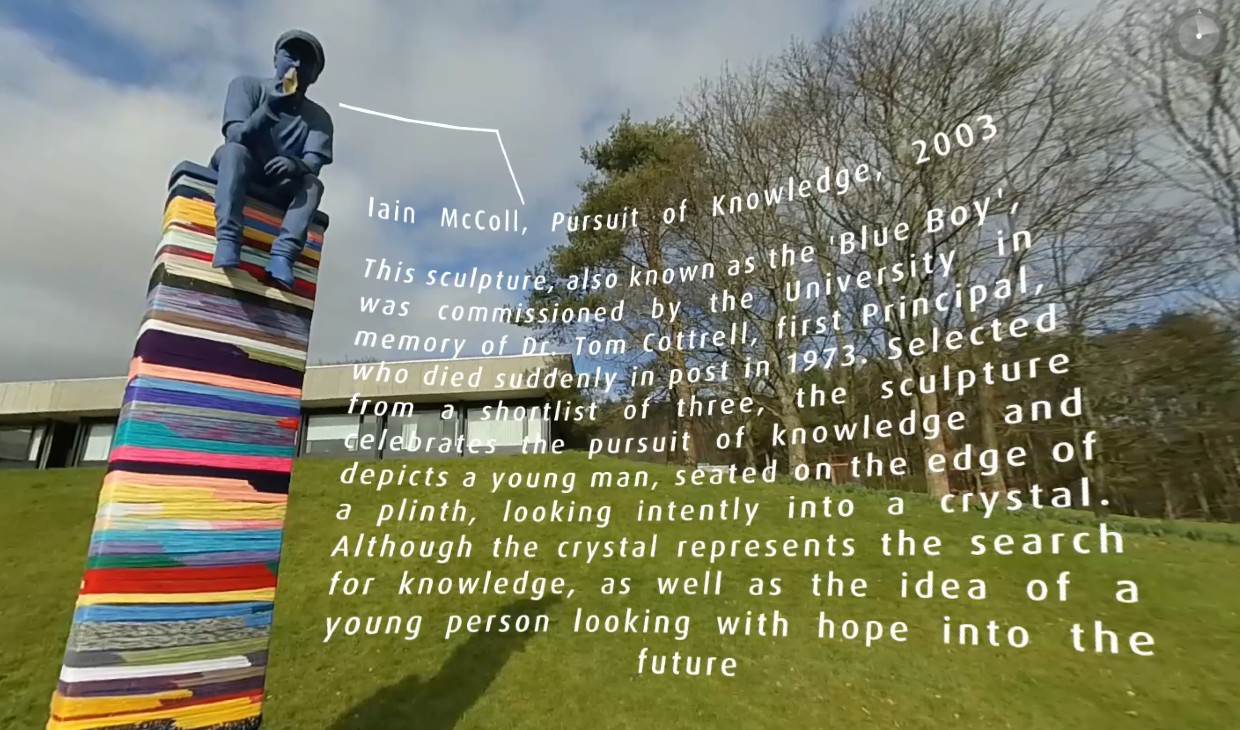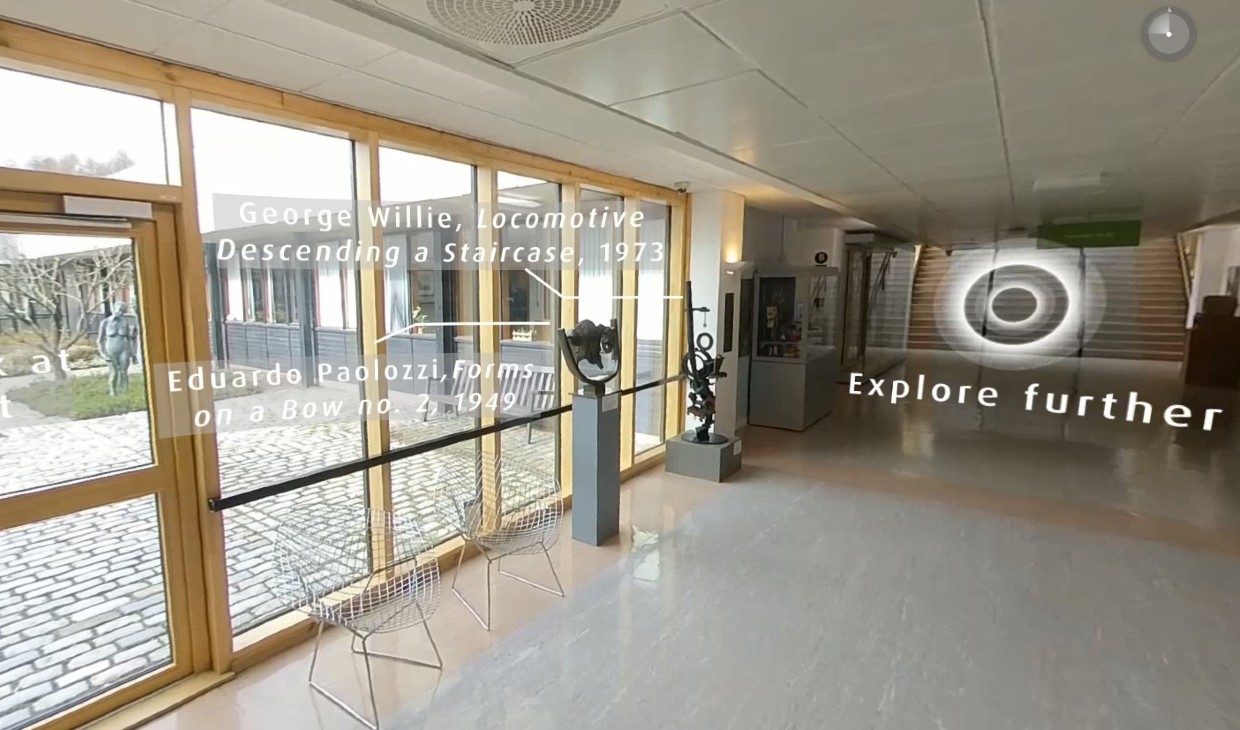New 360-degree tour of University Art Collection
The University of Stirling Art Collection has launched a new virtual tour – designed by an award-winning student – allowing members of the public to explore the exhibition during lockdown.
/filters:format(webp)/filters:no_upscale()/prod01/cdn/media/stirling/events/calendar-of-events/images/generic/university-campus-wallace-monument-1920X689.jpg)
The University of Stirling Art Collection has launched a new virtual tour – designed by an award-winning student – allowing members of the public to explore the exhibition during lockdown.
The 360-degree tour features popular works from the permanent collection housed in the Pathfoot Building, including those by John Duncan Fergusson, Eduardo Paolozzi and Barbara Hepworth.
The technology was designed by final-year Stirling student, Pierre Engelhard, as part of a digital publishing project for his Film and Media and Journalism degree. Significantly, Pierre’s work on the Art Collection tour won a Gold Award in the Electronic Media / Social Media / Interactive Media category at the 2020 Hermes Creative Awards.

The new tour provides information on Stirling exhibits, including 'The Blue Boy'.
Due to the current pandemic, the Pathfoot Building is currently closed – and physical access to the Art Collection is restricted. However, Deputy Curator Sarah Bromage said Pierre’s efforts – combined with the Collection’s existing online presence – meant that it remained accessible to all.
She said: “The new 360-degree tour of the Art Collection provides online access to some of our most popular exhibits and means that they remain available to all, despite the current restrictions.
“We are very appreciative of Pierre’s work on this project – and are delighted to be able to share this technology with art enthusiasts across Stirling, Scotland and even further afield.”

Stirling student Pierre Engelhard designed the technology, allowing users to 'visit' the Art Collection during lockdown.
The tour begins outside the Pathfoot Building, allowing the user to enter the building to explore the Collection inside. Exhibits are labelled, with some offering the ability to click for more information.
Pierre said: “My course project consists of the creation of a prototype app, which serves as a host to the 360-degree, interactive videos I have created. The app encourages viewers to watch the videos using a virtual reality headset, which enhances the immersive feeling of the experience – and gives the impression of walking through the walls of a virtual museum. However, the Art Collection tour has been specially designed to be viewed on a web browser.
“The technology provides interactive options, enabling the viewer to click on pieces of art and contemplate their digital representations. It intends to enhance accessibility to cultural sites, thanks to emerging technologies and digital media. Moreover, the project explores the educational role of traditional physical museums and how it can be implemented into virtual museums.”

The technology allows users to take a 360-degree tour of the Collection, in Pathfoot Building.
On graduating, Pierre is planning to undertake a Digital Direction MA at the Royal College of Art. He added: “I am pleased to have collaborated with the Art Collection; recreating digital versions of their beautiful art was a lovely way to finish my academic journey at the University of Stirling.”
For more information on the University’s Art Collection, please see the website.
